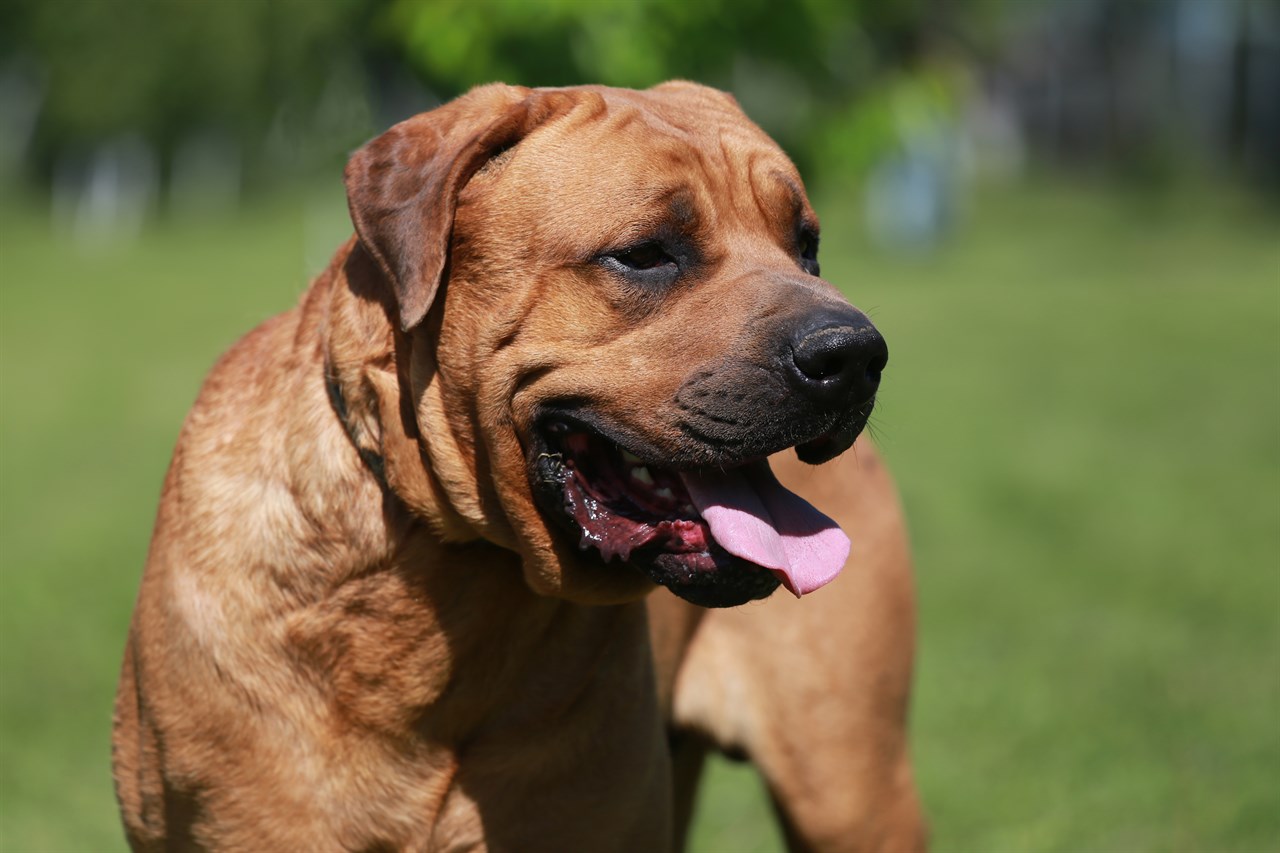The Majestic Tosa Inu: A Comprehensive Guide

Introduction
In the realm of dog breeds, there exist canines of exceptional history, regal appearance, and impressive stature. One such breed is the Tosa Inu, a majestic and powerful dog originating from Japan. Known for its imposing size and unwavering loyalty, the Tosa Inu has a fascinating history, a unique place in the world of dog breeds, and a distinctive set of characteristics that make it stand out. In this comprehensive guide, we will delve into the Tosa Inu's intriguing past, its role in the canine world, its physical attributes, and address some common questions about this remarkable breed.
Breed History
The Tosa Inu, often referred to as the Tosa or the Japanese Mastiff, is a breed that traces its roots to Japan, specifically the Tosa region on the island of Shikoku. Its history dates back to the late 19th century when breeders sought to create a formidable and agile fighting dog, primarily for dog fighting competitions, which were popular in Japan at the time.
The breed's development involved crossing various Japanese and foreign dog breeds, including the Kochi, Shikoku, and the Great Dane, Bulldog, and Mastiff. These crosses aimed to combine traits such as size, strength, and tenacity, resulting in a breed with formidable physical attributes.
Also Known As
The Tosa Inu is also known as the Tosa or Japanese Mastiff by lovers of the breed.
Breed Group and Purpose
The Tosa Inu belongs to the Mastiff and Molosser breed group. This group includes large, muscular dogs characterised by their imposing presence and powerful build. Tosa Inus were originally bred for dog fighting, and their size, strength, and courage made them well-suited for this purpose. However, modern Tosa Inus are primarily kept as family companions and guard dogs.
Breed Size
The Tosa Inu is a giant breed, known for its impressive size. Adult males typically stand between 61 to 82 centimetres at the shoulder, while females are slightly smaller, ranging from 56 to 71 centimetres. The breed's weight can vary but generally falls within the range of 45 to 91 kilogrammes.
Breed Coat, Colour, and Appearance
Coat
Tosa Inus have a short, dense, and straight coat that lies close to their muscular bodies. The coat is smooth to the touch, making grooming relatively straightforward. This breed does shed, especially during seasonal changes, but its grooming needs are minimal compared to breeds with longer or denser fur.
Colour
The breed's coat colour can vary but is most commonly seen in shades of red, brindle, or fawn. White markings on the chest and paws are also common. While the red and brindle colours are most prevalent, the breed standard allows for a range of coat colours, as long as they are clear and distinct.
Appearance
The Tosa Inu has a distinct and commanding appearance. Its head is broad and massive, with a well-defined stop and a strong, square-shaped muzzle. The eyes are dark and round, conveying a dignified and alert expression. The ears are small, thin, and hang close to the head.
The breed's neck is muscular and slightly arched, leading to a deep chest and a straight back. Tosa Inus have a powerful, well-muscled body with a deep, broad chest and a strong, level topline. Their legs are straight and sturdy, supporting their substantial weight. The tail is thick at the base and tapers to a fine point, often carried in a slight curve.
Common Questions about Tosa Inu
What does Tosa Inu mean in English?
The term "Tosa Inu" roughly translates to "Tosa Dog" or "Tosa Mastiff." "Inu" is the Japanese word for "dog," and "Tosa" refers to the region of Japan where the breed originated.
Is Tosa Inu rare?
Yes, Tosa Inus are considered a rare breed, especially outside of Japan. Due to their historical association with dog fighting, they are relatively uncommon in many parts of the world. In Japan, however, they hold a special place and are recognised as a national treasure.
How strong is a Tosa Inu bite?
Tosa Inus possess powerful jaws, and their bite force is considerable, like many large dog breeds. While specific measurements may vary among individual dogs, Tosa Inus have strong jaws and teeth that make them capable of exerting significant pressure when they bite.
Conclusion
The Tosa Inu is a breed with a rich history, impressive size, and a distinctive appearance. While their origins in dog fighting are a part of their past, modern Tosa Inus are known for their loyalty, protectiveness, and gentle demeanour when raised in loving homes. This breed's rarity and unique characteristics make it a captivating choice for those who appreciate its imposing presence and deep-rooted Japanese heritage.
Continue reading our Tosa Inu in-depth articles
- Tosa Inu Temperament and Behaviour
- Tosa Inu Training and Socialisation
- Tosa Inu Toilet Training
- Tosa Inu Barking Habits
- Tosa Inu Grooming Requirements
- Tosa Inu Shedding Behaviour
- Tosa Inu Sleeping Behaviour
- Tosa Inu Diet and Feeding Requirements
- Tosa Inu Average Lifespan
- Tosa Inu Exercise Requirements
- Tosa Inu Common Health Issues
- Tosa Inu Suitability Guide
- Tosa Inu Advantages
- Tosa Inu Disadvantages
- Tosa Inu Cost to Buy and Own
- Tosa Inu Clubs and Links
- Selling Tosa Inu Puppy Litters and Dogs
- Buying Tosa Inu Puppies and Dogs
- Tosa Inu Alternatives